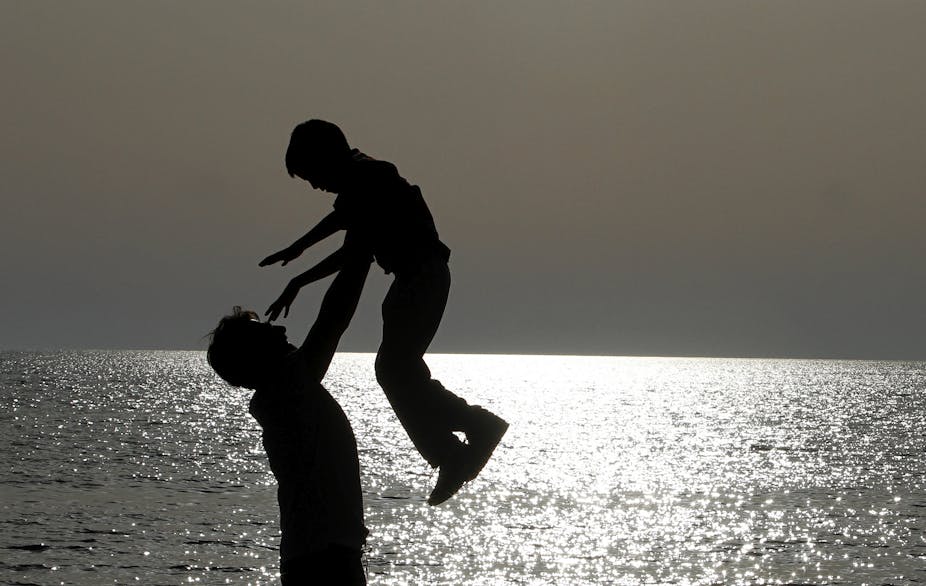When fathers play an active and equal role in the household and are a positive presence, it relieves the burden of care on mothers and is associated with a household where violence is less likely to take place.
Research from Norway has found that the incidence of violence against women or children in equitable homes is three times lower than households where fathers dominate.
The finding is drawn from the State of the World’s Fathers report. Released this week, the report is the first of its kind across the world. It joins the State of the World’s Mothers and State of the World’s Children reports as a regular update on how men’s contribution to caregiving looks across the world.
The report showcases data on men’s caregiving, time use, the links between fatherhood and violence, and on their involvement in sexual and reproductive health, especially maternal health.
A legacy of violence
In South Africa, women shoulder most of the burden of raising children, which is mostly unpaid. Like many other countries around the world, men still do most of the paid work in the professional workplace, and hold the most senior positions. Women still bear the responsibility of the unpaid care work at home.
In addition to the burden of care, women and children are also exposed to high levels of violence perpetrated by men. There seems to be a relationship between men’s contribution to care work, their presence in the household, and the risk of violence.
The factors that contribute to this situation in South Africa span generations, and are complex. South Africa’s industrial nexus was built through the exploitation of black men by the apartheid regime, which normalised the state-sanctioned use of violence.
The migrant labour system removed men from the household and from their caring and caregiving roles.
The system also reduced mens’ parenting role to one that was primarily financial. This is an increasingly difficult role given South Africa’s levels of poverty and unemployment. Additional tensions have been created in recent years with unemployment rising to 25%.
More than 80% of children under the age of five live in single parent households with their mothers. Two of every three children live apart from their fathers. In addition, the workload in some is very high with women doing eight times the amount of care work in households that men do. Fathers mostly live elsewhere, or may be deceased.
Physical absence does not necessarily equal emotional absence. Some fathers still maintain long-distance relationships with their children, though this has become the exception, not the rule.
The cycle of violence
The presence of a father, or a man, in a household is not necessarily a good thing.
The report reiterates the known fact that the majority of women who suffer violence do so at the hands of an intimate male partner, at epidemic levels. Globally, one out of three women, in their lifetimes, experiences violence by a male partner.
The most common form of violence by parents against children is corporal punishment. One in three children experienced extremely harsh physical punishment in Yemen, the Central African Republic, Nigeria, Egypt, the Democratic Republic of the Congo and Chad.
Known as an intergenerational cycle of violence, evidence from around the world shows that boys and girls who directly experience violence or witness violence against their mothers are more likely to repeat these patterns in their adult relationships.
According to the report, several recent studies from Kenya and Uganda show that men and women who accepted intimate partner violence witnessed or experienced violence during childhood.
Creating non-violent households
A long-term strategy to prevent male violence is to prevent violence against children, before they become adults.
But to prevent violence and improve gender equality, men must become more involved in household care work. The report suggests parenting leave for fathers and the prohibition of corporal punishment as some of the possible solutions.
The South African government provides four months of maternity leave, paid up to 75%, and with no dedicated parenting leave for fathers. Fathers have access to three days of “family responsibility leave” but this includes any family contingency like funerals or caring for sick family members. Some companies, organisations and universities are taking the lead and offer a variety of leave models, including dedicated leave for fathers.
But corporal punishment is still legal in most settings, except schools, despite a strong lobby group working to prohibit the practice since the Children’s Act was accepted in 2005.
Working with men and fathers to challenge harmful beliefs around men, masculinity, and caregiving offers unique opportunities to address intimate partner violence and violence against children. It will also break the intergenerational cycle of violence.
To address violence, according to the report, a transformation in social norms and attitudes around gender, power and violence is needed. This has to be coupled with skills around emotional competencies, empathy, communication, conflict resolution and anger management.

